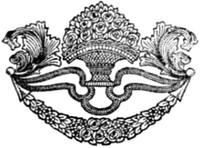Read this ebook for free! No credit card needed, absolutely nothing to pay.
Words: 9153 in 5 pages
This is an ebook sharing website. You can read the uploaded ebooks for free here. No credit cards needed, nothing to pay. If you want to own a digital copy of the ebook, or want to read offline with your favorite ebook-reader, then you can choose to buy and download the ebook.


: The Declaration of the Rights of Man and of Citizens by Jellinek Georg Farrand Max Translator - Constitutional history United States; Natural law; Constitutional history France
first and most sacred right, overshadowing all others. This philosopher, who held freedom to be man's inalienable gift from nature, established servitude and slavery under the government he organized without hesitation, but religious toleration he carried through with great energy in this new feudal state.
Thus the principles of religious liberty to a greater or less extent acquired constitutional recognition in America. In the closest connection with the great religious political movement out of which the American democracy was born, there arose the conviction that there exists a right not conferred upon the citizen but inherent in man, that acts of conscience and expressions of religious conviction stand inviolable over against the state as the exercise of a higher right. This right so long suppressed is no "inheritance", is nothing handed down from their fathers, as the rights and liberties of Magna Charta and of the other English enactments,--not the State but the Gospel proclaimed it.
What in Europe at that time and even much later had received official expression only in scanty rudiments, and aside from that was only asserted in the literature of the great intellectual movement which began in the seventeenth century and reached its height in the clearing-up epoch of the century following, was in Rhode Island and other colonies a recognized principle of the state by the middle of the seventeenth century. The right of the liberty of conscience was proclaimed, and with it came the conception of a universal right of man. In 1776 this right was designated by all the bills of rights, mostly in emphatic form and with precedence over all others, as a natural and inherent right.
The character of this right is emphasized by the bill of rights of New Hampshire, which declares that among the natural rights some are inalienable because no one can offer an equivalent for them. Such are the rights of conscience.
The idea of legally establishing inalienable, inherent and sacred rights of the individual is not of political but religious origin. What has been held to be a work of the Revolution was in reality a fruit of the Reformation and its struggles. Its first apostle was not Lafayette but Roger Williams, who, driven by powerful and deep religious enthusiasm, went into the wilderness in order to found a government of religious liberty, and his name is uttered by Americans even to-day with the deepest respect.
FOOTNOTES:
THE CREATION OF A SYSTEM OF RIGHTS OF MAN AND OF CITIZENS DURING THE AMERICAN REVOLUTION.
The seventeenth century was a time of religious struggles. In the following century political and economic interests pressed into the foreground of historical movement. The democratic institutions of the colonies were repeatedly in opposition to those of the mother-country, and the ties that bound them to her lost more and more of their significance. The great antagonism of their economic interests began to make itself widely felt. The economic prosperity of the colonies demanded the least possible restriction upon free movement. Finally they felt that they were ruled not by their old home but by a foreign country.
Then the old Puritan and Independent conceptions became effective in a new direction. The theory of the social compact which played so important a r?le in the founding of the colonies, and had helped to establish religious liberty, now supported in the most significant way the reconstruction of existing institutions. Not that it changed these institutions, it simply gave them a new basis.
The colonists had brought over the ocean with them their liberties and rights as English-born subjects. In a series of charters from the English kings it was specifically stated that the colonists and their descendants should enjoy all the rights which belonged to Englishmen in their native land. Even before the English Bill of Rights the most of the colonies had enacted laws in which the ancient English liberties were gathered together. There occurred, however, in the second half of the eighteenth century a great transformation in these old rights. The inherited rights and liberties, as well as the privileges of organization, which had been granted the colonists by the English kings or had been sanctioned by the colonial lords, do not indeed change in word, but they become rights which spring not from man but from God and Nature.
To these ancient rights new ones were added. With the conviction that there existed a right of conscience independent of the State was found the starting-point for the determination of the inalienable rights of the individual. The theory of a Law of Nature recognized generally but one natural right of the individual--liberty or property. In the conceptions of the Americans, however, in the eighteenth century there appears a whole series of such rights.
The teaching of Locke, the theories of Pufendorf and the ideas of Montesquieu, all powerfully influenced the political views of the Americans of that time. But the setting forth of a complete series of universal rights of man and of citizens can in no way be explained through their influence alone.
Free books android app tbrJar TBR JAR Read Free books online gutenberg
More posts by @FreeBooks

: An Ode Read August 15 1907 at the dedication of the monument erected at Gloucester Massachusetts in commemoration of the founding of the Massachusetts Bay colony in the year sixteen hundred and twenty-three by Cawein Madison Julius - Poetry








